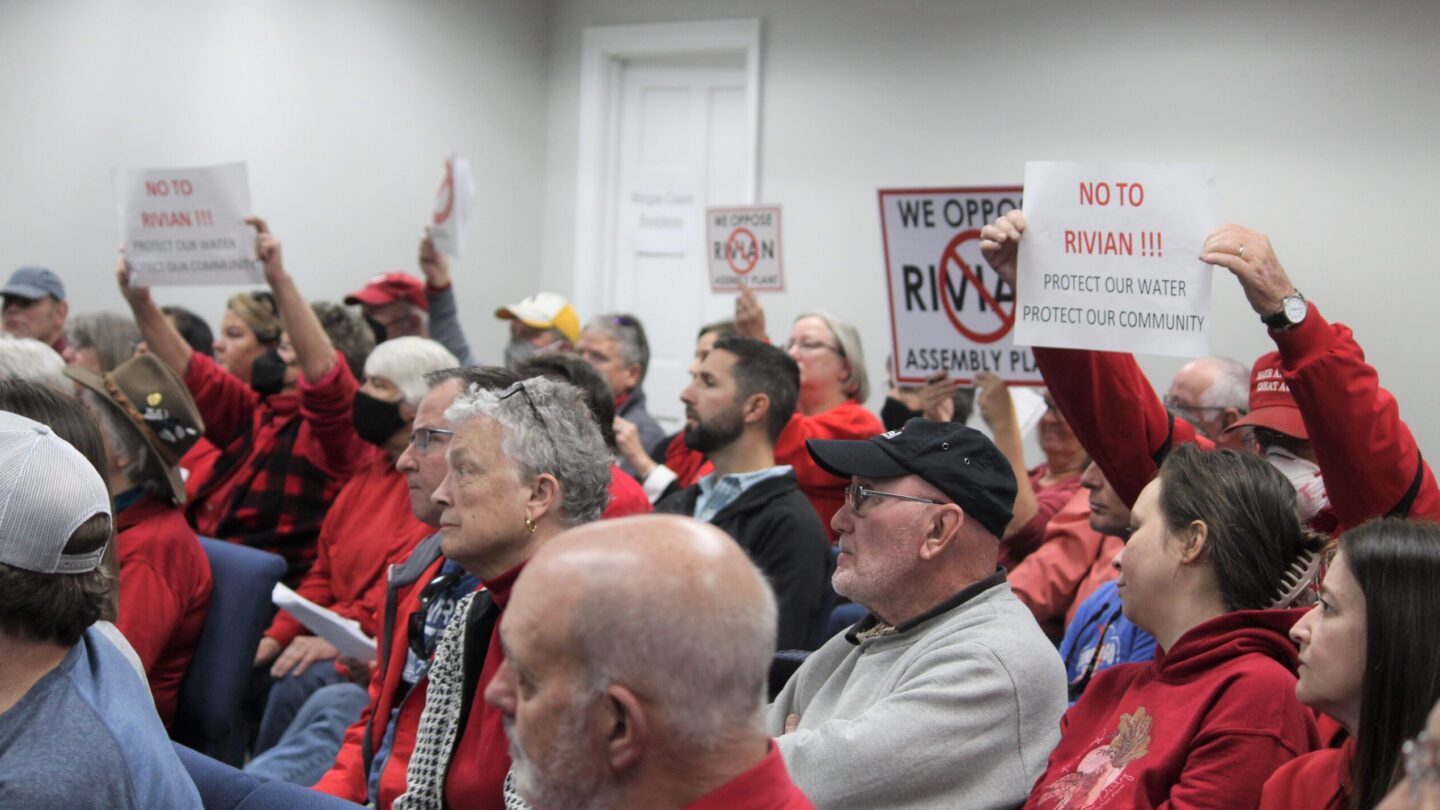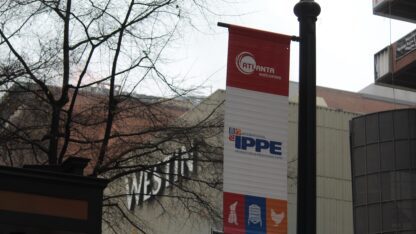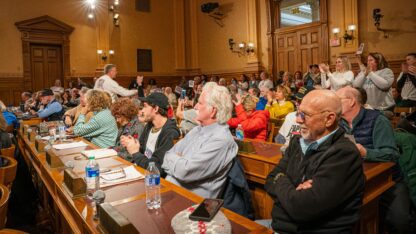Residents near the future site of the Rivian electric truck factory east of Atlanta expressed frustration and worry Tuesday over what the plant might mean for the future of their communities.
The plant, which is slated to open by early 2024, is just off I-20 about an hour east of Atlanta.
The four-county development authority responsible for attracting Rivian to Georgia got an earful from those residents at its meeting in Madison.
The authority represents Jasper, Morgan, Newton and Walton Counties. Board members sat quietly as community members spoke for nearly an hour — oftentimes emotionally — about how the plant might change the feel of the community. The crowd, many clad in red shirts, spilled into an overflow room.
At a ceremony announcing Rivian’s site selection in December, state leaders touted the plan as a $5 billion economic boon and a job creator. The Rivian plant is expected to eventually employ 7,500 workers.
Allen Wood says he worries about the small businesses in the area, something he calls the “backbone” of the community.
“I work at a place where we really struggle to come up with workers in this tight workforce, and I think it’s really going to hurt the small business in the area, for one,” said Wood.
Debbie Crowe who owns three properties in the area is concerned with the potential industrial impacts of the plant.
“My son-in-law and my daughter, they can’t afford to have their well tested every month to make sure it’s still safe for them to drink,” said Crowe. “Who’s gonna pay for that?”
In a statement, Rivian says it is still studying the potential environmental and quality-of-life impacts the plant could bring. The company says it plans to listen to community concerns as it continues to finalize plans for the plant.
Kay Argroves, who owns a Tesla, says neighbors of the future plant should have been kept better informed about plans for the plant.
“I’d like to point out that I am not against electric cars, clean energy, the creation of jobs or carbon neutrality, I support all those,” said Groves. “What I am opposed to is a lack of transparency in notifying the public that will be directly involved by this development.”
Mike Burdette, attracted by the small-town living, just bought a house in the area in December. He worries about increased traffic.
“I paid a lot of money for our house and our property in Rutledge just because it was where I wanted to be and where I wanted to spend the rest of my life,” said Burdette. “This is not what I moved to Rutledge for, this is not what I moved to Morgan County for.”










